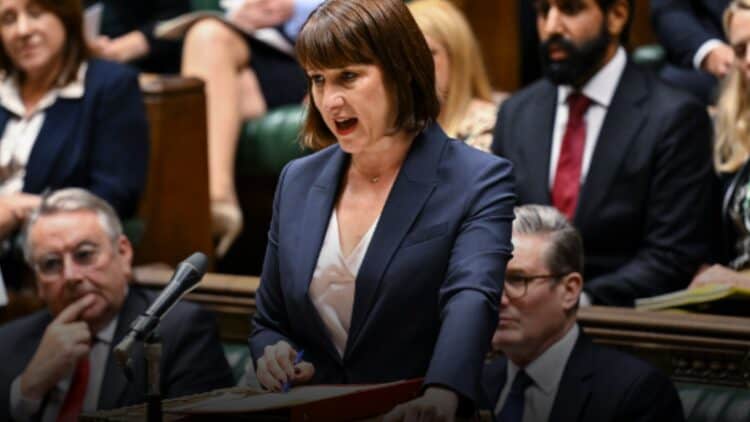Rachel Reeves is set to announce further welfare cuts after a budget watchdog slashed the government’s estimated savings by £1.6 billion.
The Office for Budget Responsibility (OBR) rejected the Treasury’s claim that reforms would save £5 billion, instead putting the figure at £3.4 billion. The dispute has sparked fresh tensions between Labour and the independent forecaster.
Now, Reeves is expected to outline an extra £500 million in cuts to balance the books. But with experts warning these measures will hit the poorest hardest—and could even cost lives—opposition is growing.
⚖️ A Battle Over the Budget
Last week, Work and Pensions Secretary Liz Kendall unveiled a package of changes to sickness benefits. Some Labour MPs immediately criticised the plan.
The OBR then reviewed the numbers and told ministers their savings estimates were off. Officials had overestimated how much claimants would be affected, leading to a £1.6 billion shortfall.
After days of tense negotiations, the OBR stood its ground. Now, Reeves and Kendall have been forced to find further cuts elsewhere.
💰 What’s Changing?
To plug the gap, ministers will:
✔️ Freeze universal credit incapacity benefits for new claimants until 2030.
✔️ Reduce the basic rate of universal credit in 2029, despite Kendall recently increasing it by £7 per week.
These changes will generate around £500 million by 2030. However, Reeves won’t make up the full £1.6 billion shortfall through welfare cuts alone. Instead, she plans to slash £5 billion from other public services to meet her fiscal targets.
📌 Where these cuts will fall will be announced in June.
🚫 More Cuts, But ‘Not Austerity’?
Reeves insists these changes don’t mark a return to austerity. She points to the tax rises and spending boosts announced in last year’s autumn budget as proof.
However, departments outside the NHS and Ministry of Defence are bracing for significant cuts. Cabinet ministers are already pushing back against the plans.
Health Secretary Wes Streeting defended the need for savings, writing in The Times:
“NHS productivity is a serious problem for our economy, the public finances, and the sustainability of the health service.”
Streeting blamed inefficiencies for soaring waiting times, despite a 17% rise in hospital staff since 2019.
🤝 Government vs. The Watchdog
Labour’s frustrations with the OBR are growing. Some ministers, including senior allies of Keir Starmer, have questioned the accuracy of its forecasts. They argue the constraints imposed by the watchdog are making it harder to grow the economy.
Ironically, one of Reeves’ first moves as chancellor was to strengthen the OBR’s role—a direct response to Liz Truss sidelining it during her disastrous mini-budget.
Now, with disappointing growth figures and looming spending cuts, that decision is coming under scrutiny.
📉 Who Will Be Hit Hardest?
Alongside the budget statement, Kendall will release an impact assessment outlining how these cuts will affect millions of people:
🔹 1 million will see their personal independence payments reduced.
🔹 2 million will be affected by universal credit incapacity benefit changes.
🔹 The poorest households will take the biggest hit, according to reports.
Hannah Peaker, from the New Economics Foundation, condemned the move:
“The chancellor is pushing through cuts that will harm millions without fully understanding the impact. This is no way to run an economy.”
📢 Public health experts have also raised the alarm. Writing in The BMJ, senior doctors warned these cuts could cost lives—just as similar policies did a decade ago.
Professor Gerry McCartney, from the University of Glasgow, pointed to welfare cuts linked to 600 suicides in the 2010s, adding:
“There is now substantial evidence that cuts to social security have fundamentally harmed the UK’s health. Implementing more cuts will result in more premature deaths.”
🏛️ The Bigger Picture
Reeves faces a difficult balancing act. She wants to appear fiscally responsible, but these cuts are already fuelling a backlash.
Meanwhile, with economic forecasts worsening and public services under strain, pressure is mounting on Labour to find a better solution.
Will the government stick to its plan, or will the growing opposition force a rethink? Time will tell.
You may also like: Laurence Fox charged under Sexual Offences Act – here’s why







